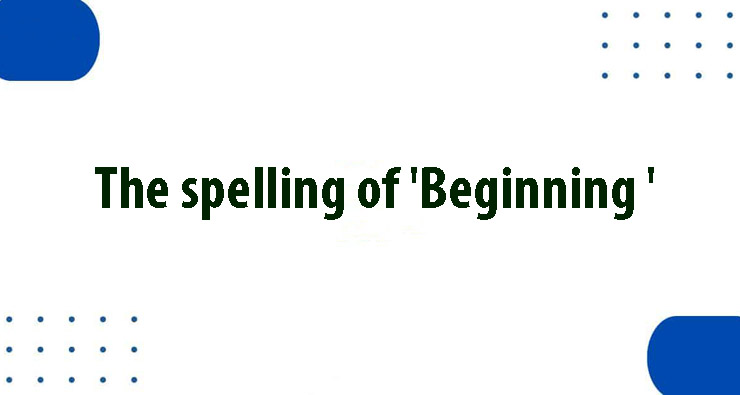It can be difficult to spell in English, especially when words have double letters. The word “beginning” is a prime example. Although it’s a very common word, its spelling can cause confusion for some. This article will explore the correct spelling for “beginning”, provide examples, as well as offer tips on how to always get it right.
Beginning
The word “Beginning”, which can be a noun form or verb, refers to the beginning of something. It is often the double “n” and its placement in the word that causes confusion.
- Beginning should be spelled correctly.
- The words “beginning” and “beginning” are often misspelled.
The Spelling Challenge
It is important to remember the number and placement of “n”s when writing “beginning”. It is easy to forget the second ‘n,’ or add an extra g.
Contextual Examples
- Correct: The movie’s beginning was captivating.
- Incorrect: She was thrilled about her new career.
Also Read: HomeWorkify: Complete Guide
Explore Variations Using Examples
Here are some more examples to help us understand:
- Correct: He marked with a book mark the beginning of the first chapter.
- Incorrect: She always loves the beginning of spring.
Summary and Key Insights
Remember that “beginning” has a double ‘n in the middle. This is a small but important detail that cannot be ignored. This will ensure that you avoid spelling mistakes and your writing is accurate.
Conclusion
Mastering the spelling “beginning” will help you improve your English skills. This seemingly small detail can have a significant impact on the clarity and professionalism in your writing. Remember that even the smallest details can make a difference, whether you are writing an email, an essay or a post on social media.
You may be looking to improve your writing abilities or require assistance in creating engaging content. We can help you with our content agency. We offer unlimited revisions and specialize in SEO content.
FAQs
What is the mnemonic for remembering “beginning?”
Imagine “beginning” starting with “begin”, and adding “ning” afterward. Add another ‘n” to “begin”, and then add ‘ing’.
Can “beginning’ be used both as a noun or verb?
Yes, “beginning”, can be used as both a noun and a present participle (e.g. the beginning of a tale) or as a verb (e.g. beginning to understand).
Why is it that people misspell “beginning”, as “beginning”?
It is usually due to the pronunciation. The double ‘n” might not be heard clearly, resulting in the omission of one ‘n.
What other words, like “beginning”, are frequently misspelled?
Double letters can be found in words such as “running” and “planning”.
Does “beginning” have to be spelled using double ‘ns?
No matter how it is used in a sentence, “beginning” should always be spelled with double ‘ns.


